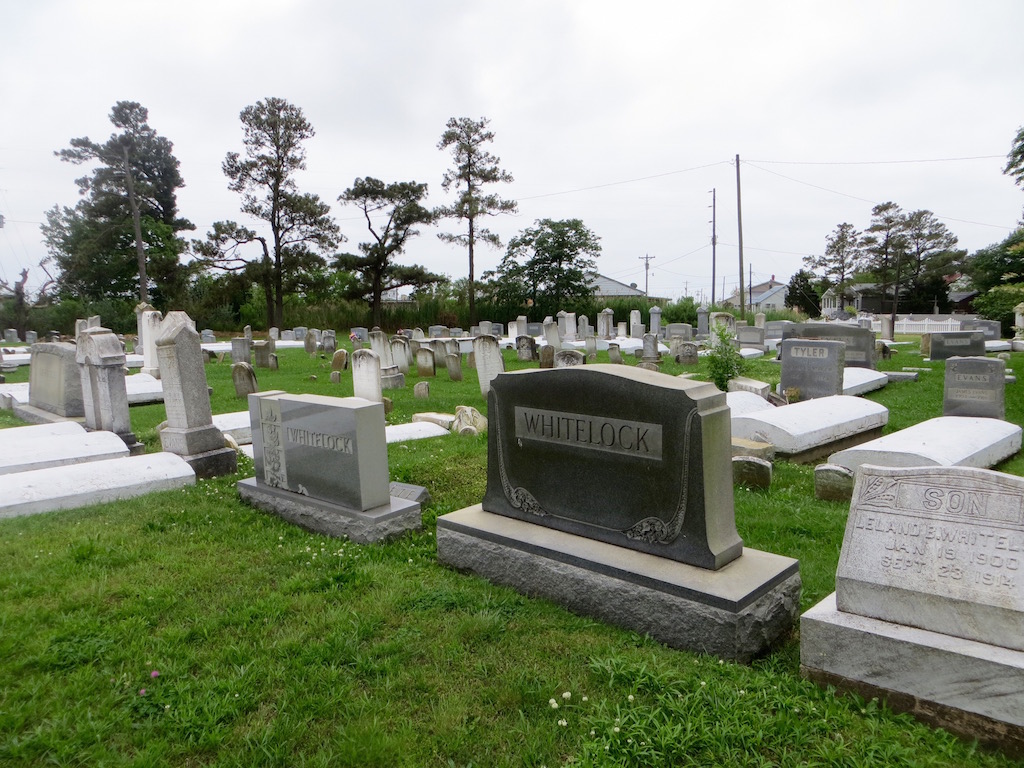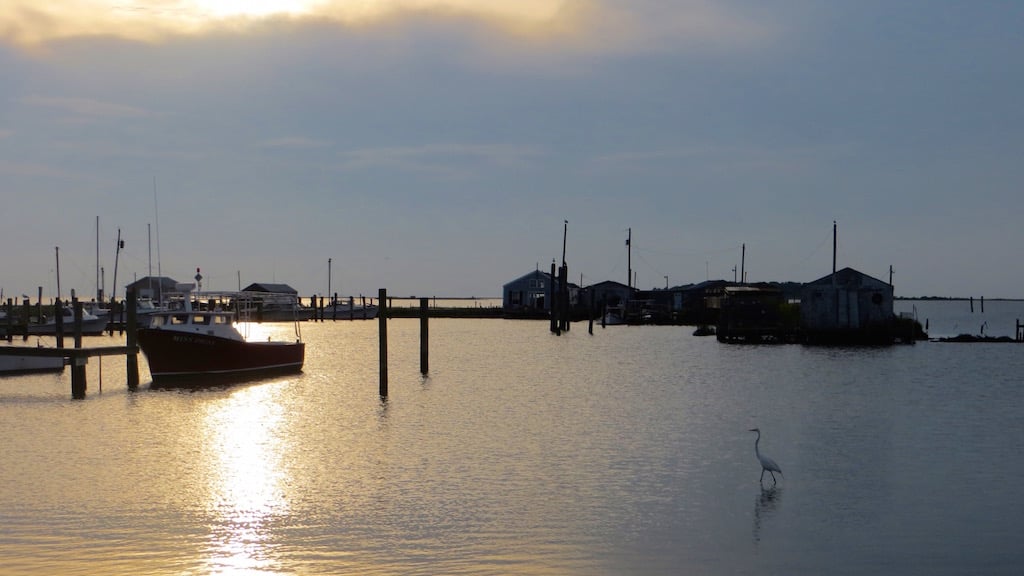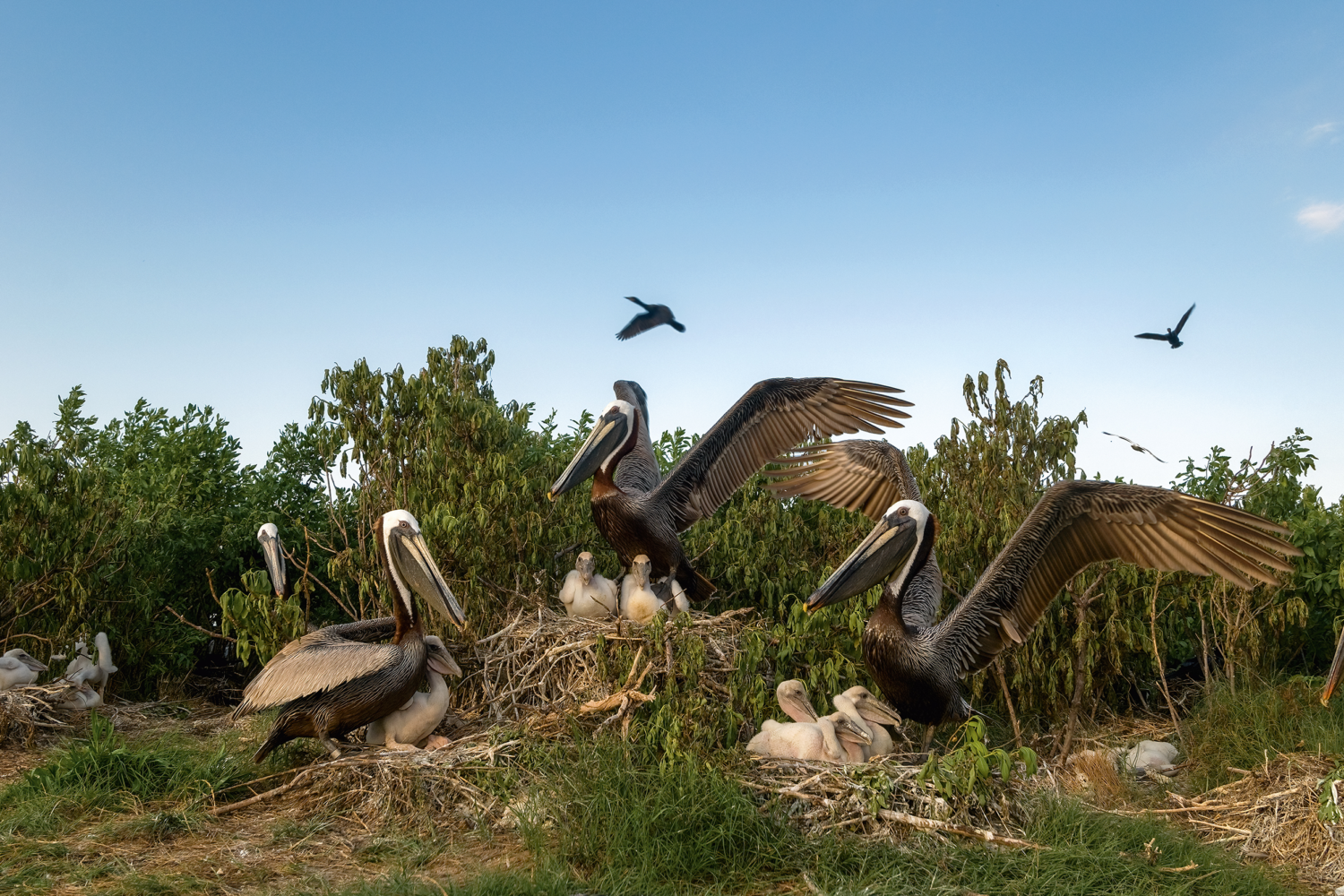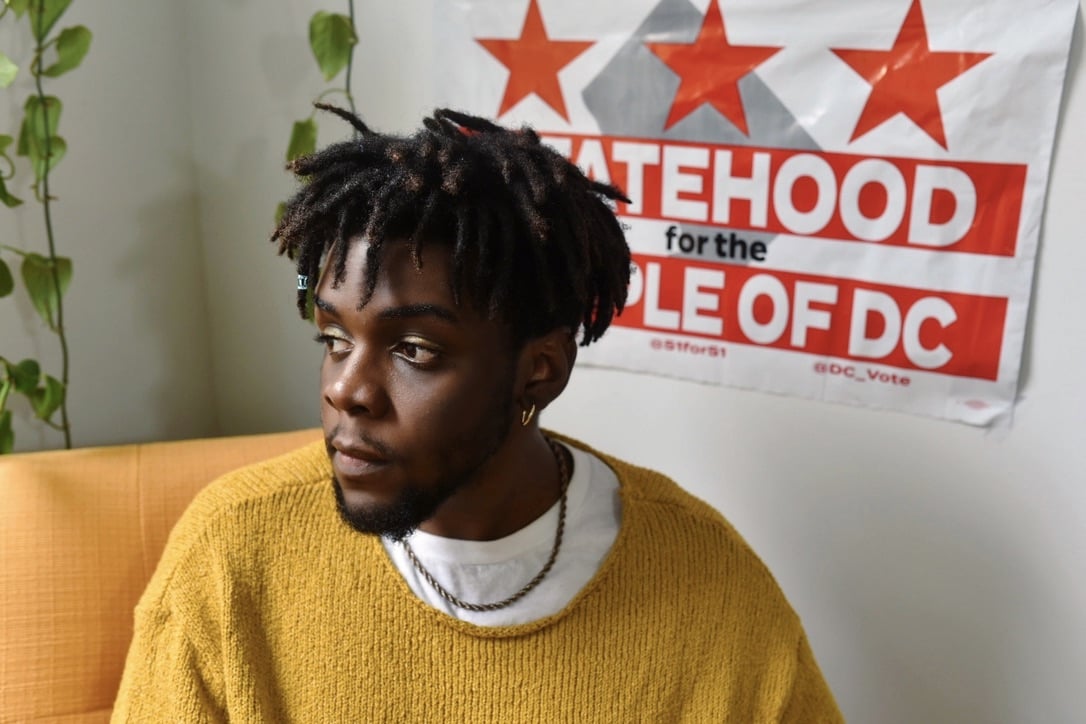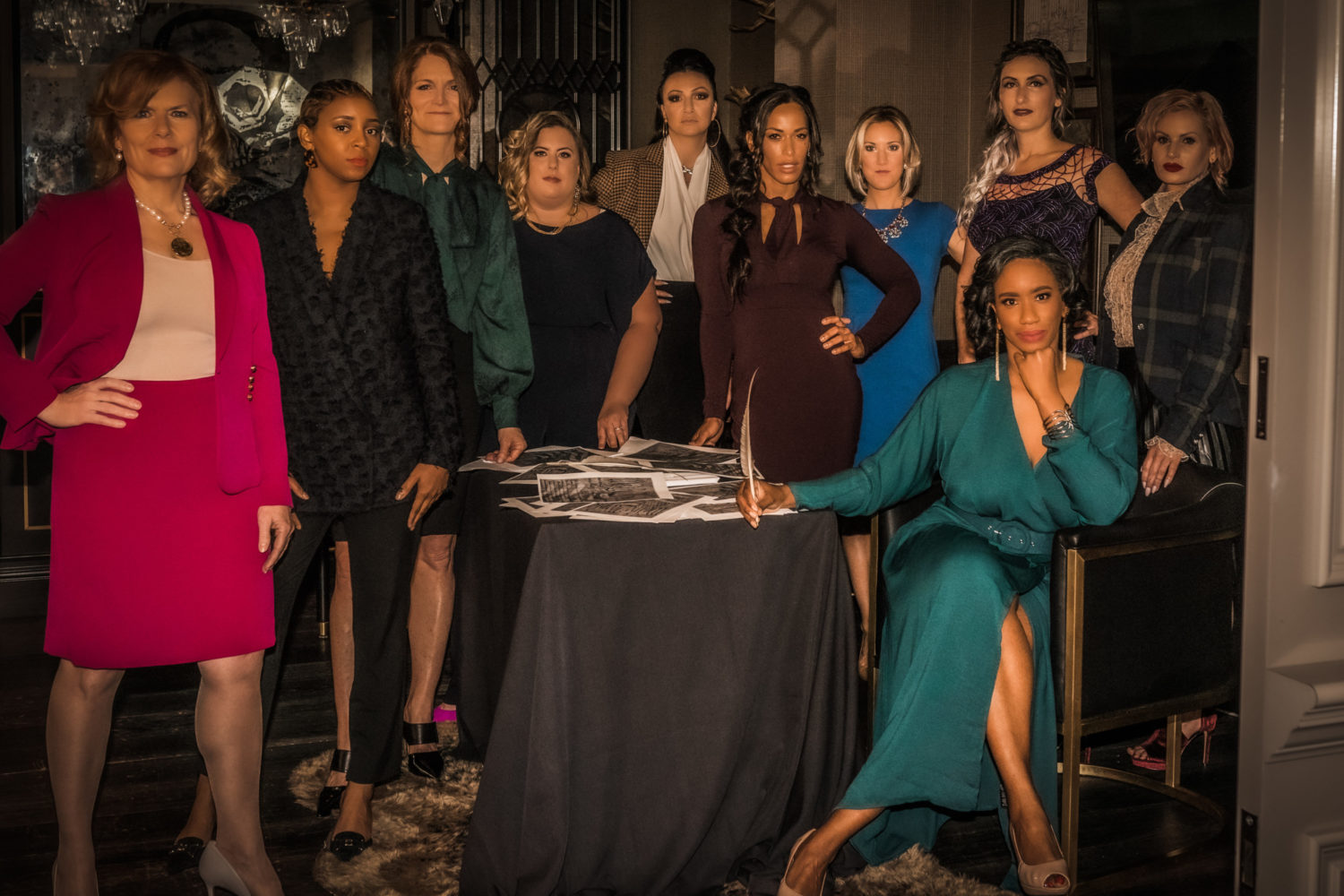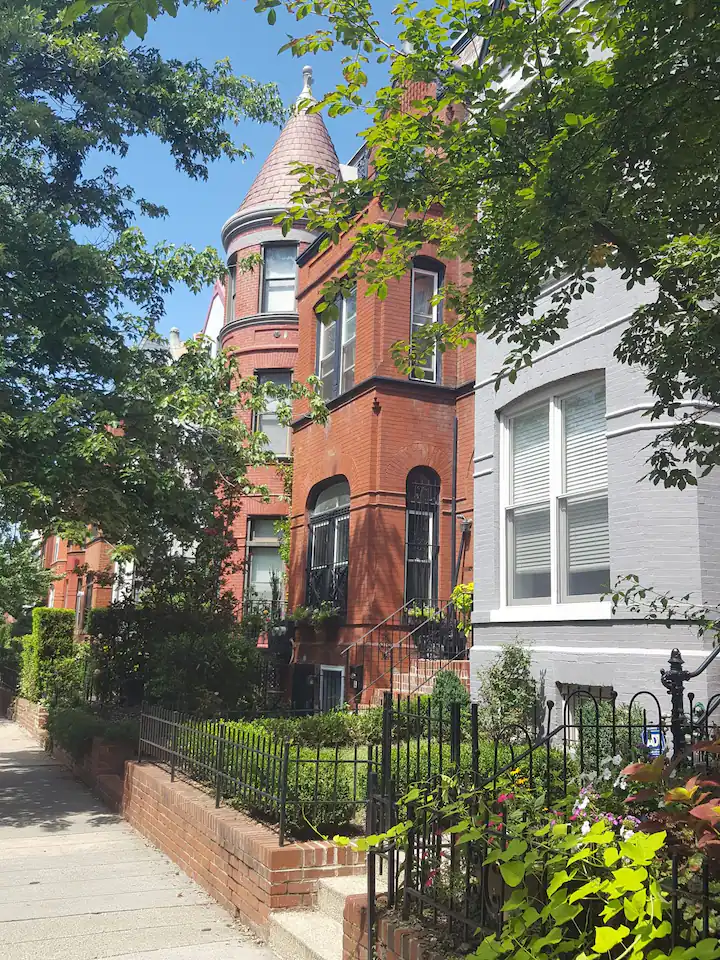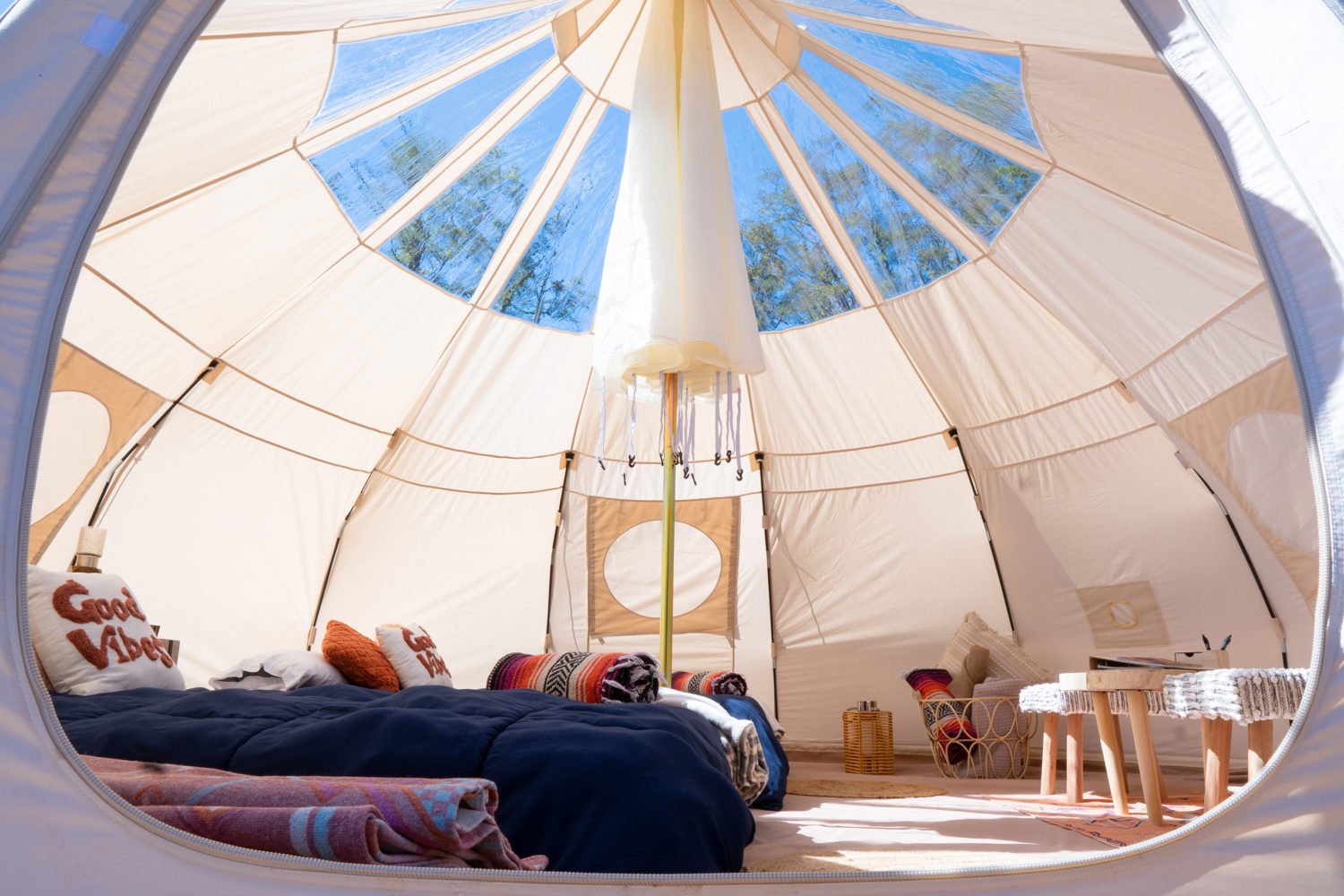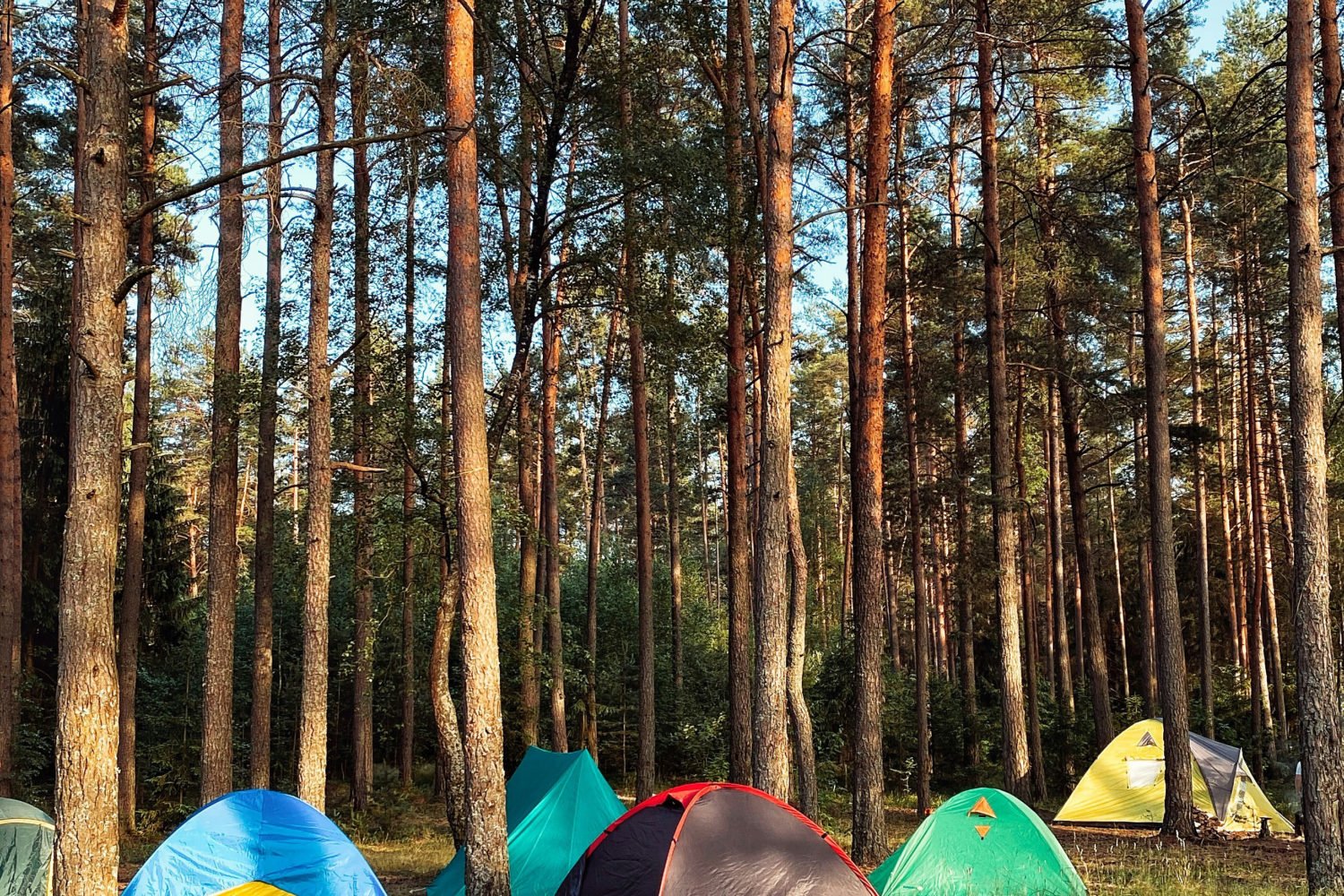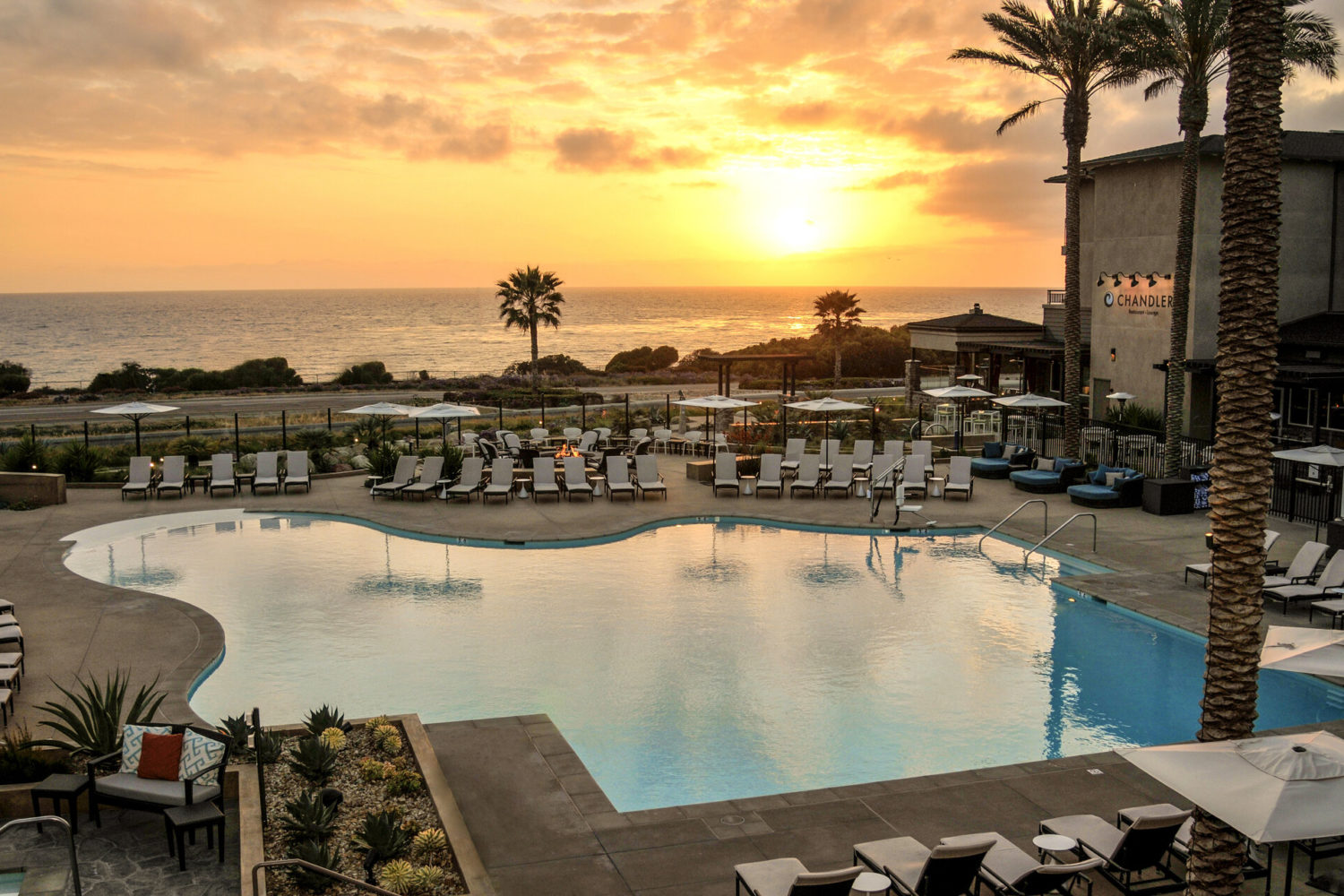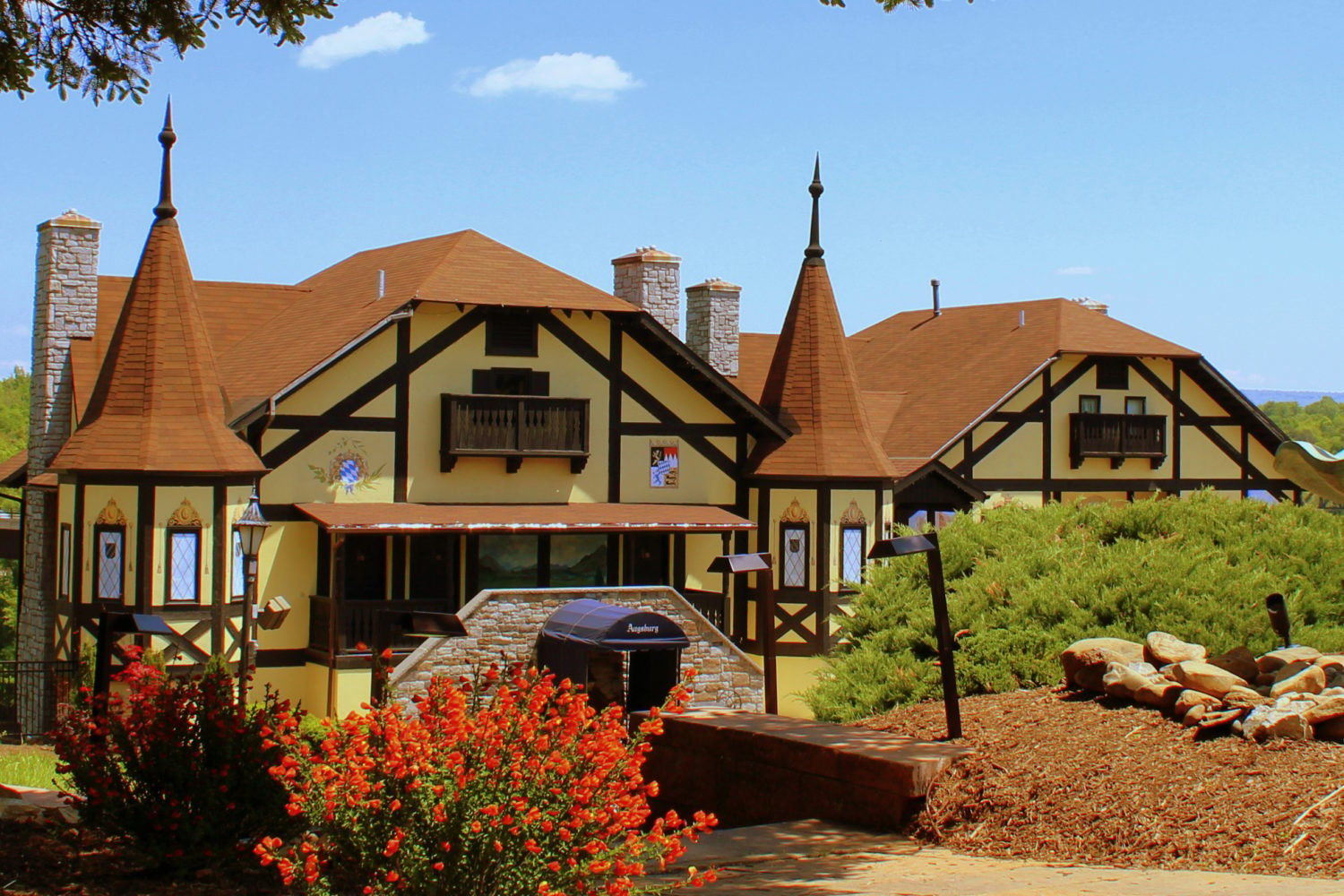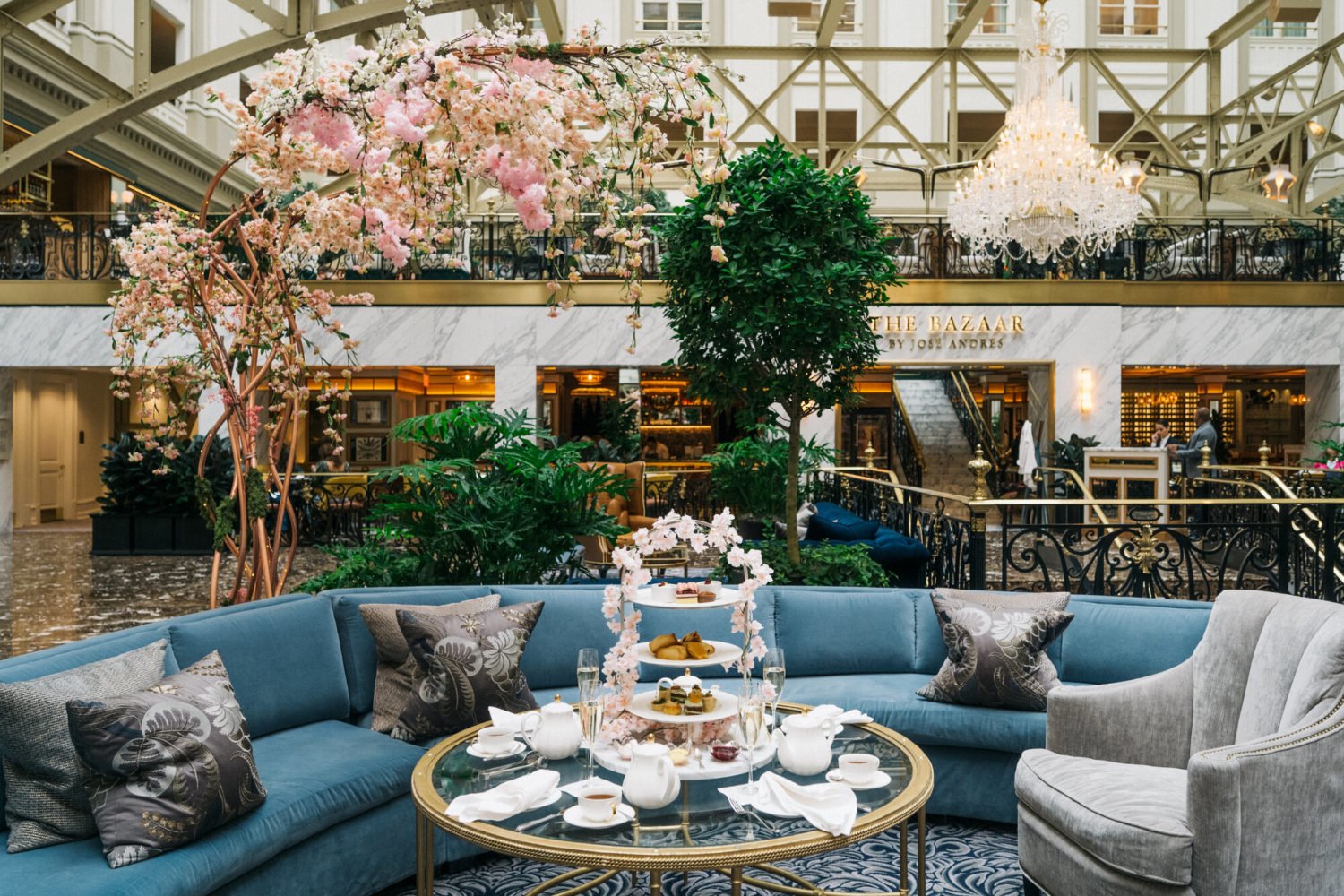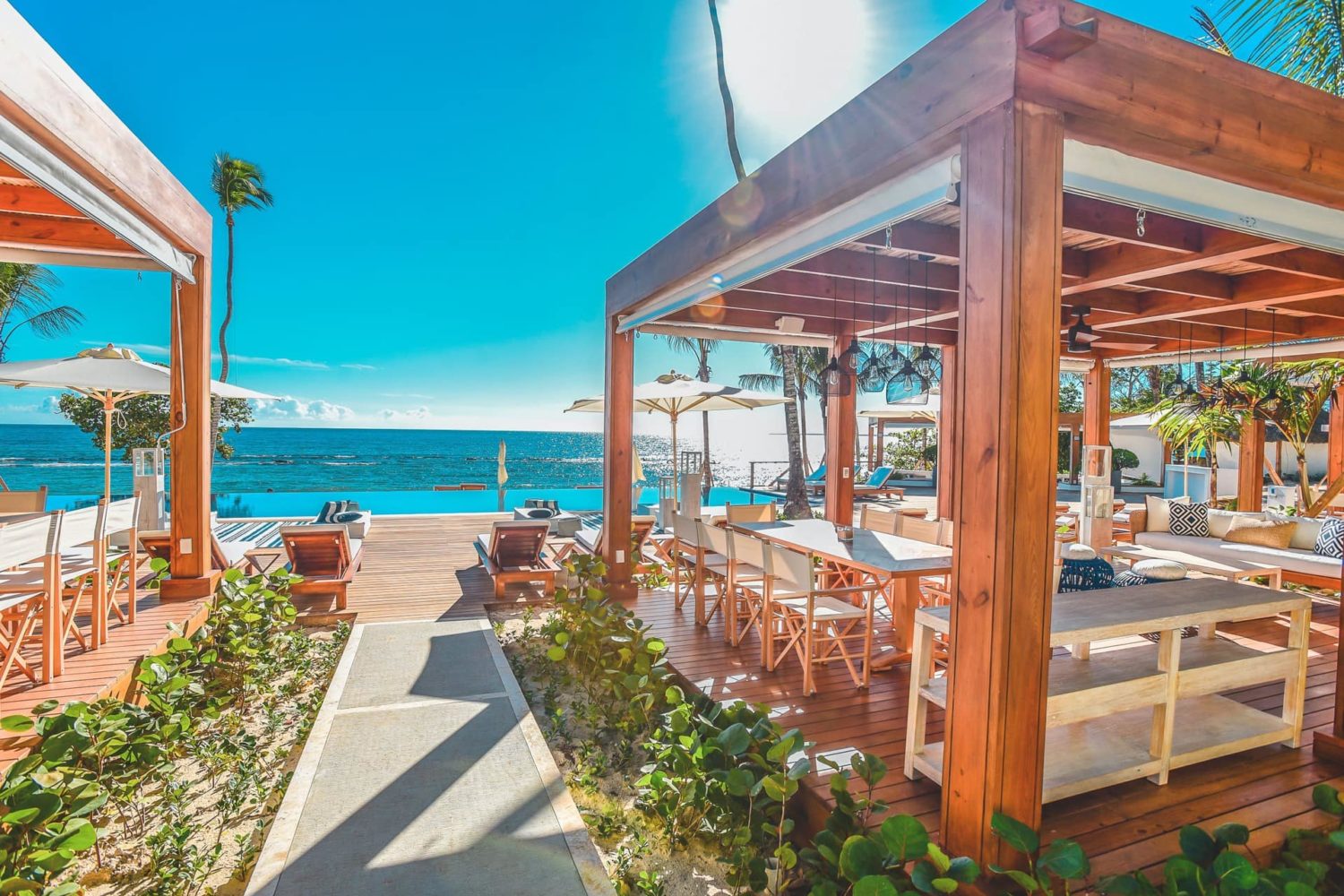1. Islands
Islands feel like accidents to me: small, misplaced crumbs of world. The trickiest puzzle pieces to locate.
Smith is the last of Maryland’s inhabited islands, but it won’t be for long. The water is rising, swallowing its edges. They keep having to move the lighthouse. People know it’s harder to catch oysters, that the water’s higher, that things are changing. That they will change more.
2. What the boat brings
The only way to get there is by sea. Terry Laird and his son run two boats, the Captain Jason and the Captain Jason II, between the island and Crisfield, its nearest mainland neighbor. Twelve miles are all that separate the salt marsh of Smith from the rest of coastal Somerset County, a 45-minute journey that the Lairds make twice a day in summer. A dozen miles of Prussian blue Tangier Sound that, on the morning I sail for Smith, is flat as a prairie.
Two hundred seventy-six people called Smith home the last time the government counted. The island sees ten times that many visitors each year, but it’s not enough to keep all the ferries running. Lucky for the Lairds, just about the only thing Smith doesn’t need to bring over from the mainland is crabs.
There are a handful of work-boats that dock in Crisfield, Maryland. Deadrises, a skiff. They were built for fishing, but now they haul whatever people will pay for. The Courtney Thomas is a mail boat out of Tangier Island, and it’s loaded up with lumber, concrete mix, and boxes of Honey Nut Cheerios. The Jason II is headed to Tylerton, the smallest of Smith’s three outposts, with six passengers, aluminum chafing dishes, and grocery bags of King’s Hawaiian Sweet Rolls.
I leave my car in Crisfield, on the lawn outside J.P. Tawes Lumber Yard for $3 a night. “Some of the letters are falling off, but you can tell what it says,” the lady on the phone reassured me. I give Captain Terry my money and take a seat on a lawn chair, next to four other passengers and 35 Dole Bananas boxes. They have names written on the sides: Snyder, Dize, Evans. I can see through the handles that the boxes are filled with canned tuna fish, paper plates, and kitty litter. The Lairds know exactly how much coffee cake each family eats.
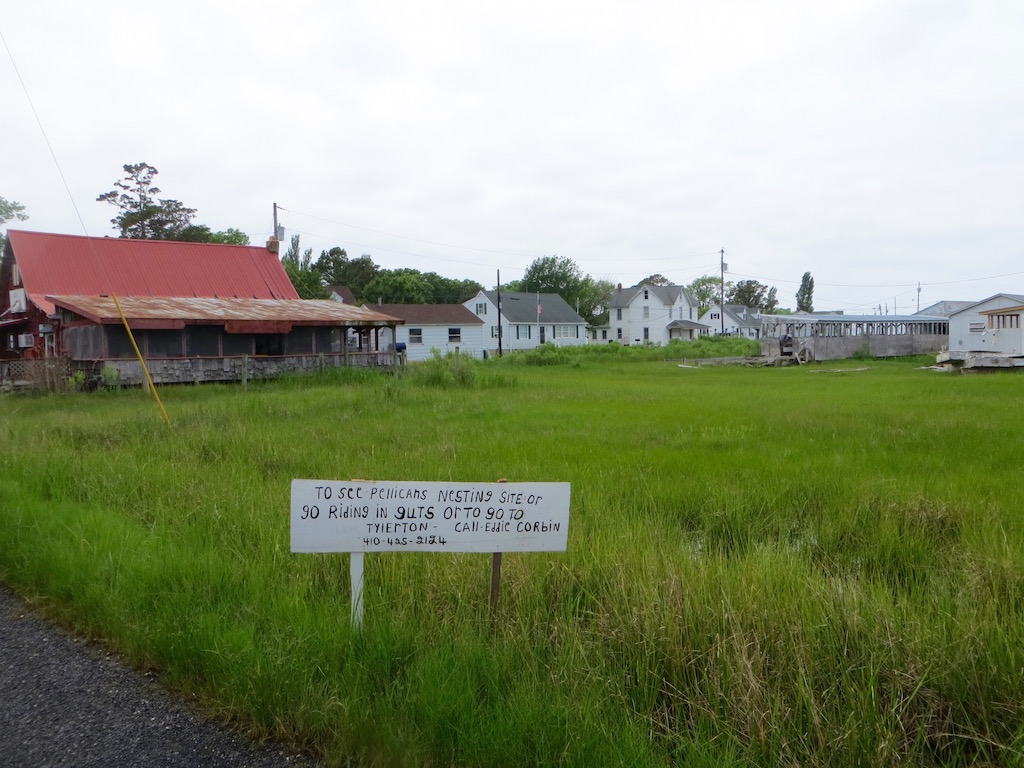
3. Peggy
Peggy is already sitting down. She’s lived on Smith her whole life, but visits the mainland to see her granddaughters now. There was a dance recital in Cambridge last night. Her own two sons grew up in Ewell, then the largest community on Smith. It still is the largest, though its population’s dwindled to about 100 and not too many of those are young people. She wears real gold earrings in the shape of the Yankees logo and runs a pick through her hair as we talk.
There’s no escape from the wind on the back of the boat. I catch only every other thing Peggy says to me, partly because she speaks in the heavy Tidewater accent that’s common on Smith. It sounds a little Cornish and a little Southern and a little like she’s trying to make room for too many vowels in one syllable.
Peggy’s sons left the island after high school and that’s a pretty normal thing to do now. She has five grandchildren, but Smith is still her home. She’s lived on Caleb Jones Road a long time, though it was only given that name 25 years ago. She lives near Susan’s, a B&B. Susan is an Evans, a popular surname on the island, and traces her Smith roots back 13 generations full of watermen. Peggy’s husband worked the water, too, but he’s passed away now. Her brother is still alive. He fished and her father fished. “Crabs in the summer, oysters in the winter,” she says. It’s still the most popular way to make a living on Smith, even now that it’s so much harder.
We pull pass a moored boat called the Miss Lydia. “Who’s Lydia?” I ask.
“It’s his granddaughter,” Peggy says. Everybody knows everybody and everybody’s boats. They have marooned themselves together.
4. Smith Island Cake
Smith is thick with hot and bugs in summer. There is nothing to really do. No movie theater, no gym, no swimming pool. No grocery store, no coffee shop, no bar. (There are three restaurants, but only one that stays open all year.) There are cars, but very few places to drive them. If you find a place to go, there are very few spots to park in. There are plenty of abandoned houses, forgotten bikes and cars swallowed by the rising marsh. The island walking tour map, which you can pick up free at the Smith Island Cultural Center, includes: Goat Island, named for the goats that were released there about 30 years ago; the Ewell School, the state of Maryland’s last remaining one-room school; and the Verizon tower, which enables islanders to communicate with the mainland and watch TV. Smith has nothing much to offer, which is, of course, at the deep roots of its appeal. A handful of books have been written about the island. They are mostly odes.
What Smith does have is Smith Island Cake, a ten-layered cake and the state dessert of Maryland. It’s beautiful to slice through, thin lines of pale-yellow buttery sponge, separated by thin layers of chocolate icing that tastes like raw from-the-box brownie mix. It’s the richest cake I’ve ever had. It forces you to slow down, eat it smidge by smidge, at the rhythm of life in Smith. Later that night, braving a second slice, I took five minute lie-downs between bites. I loved it and yet I knew I would never eat another slice as long as I continued to live.
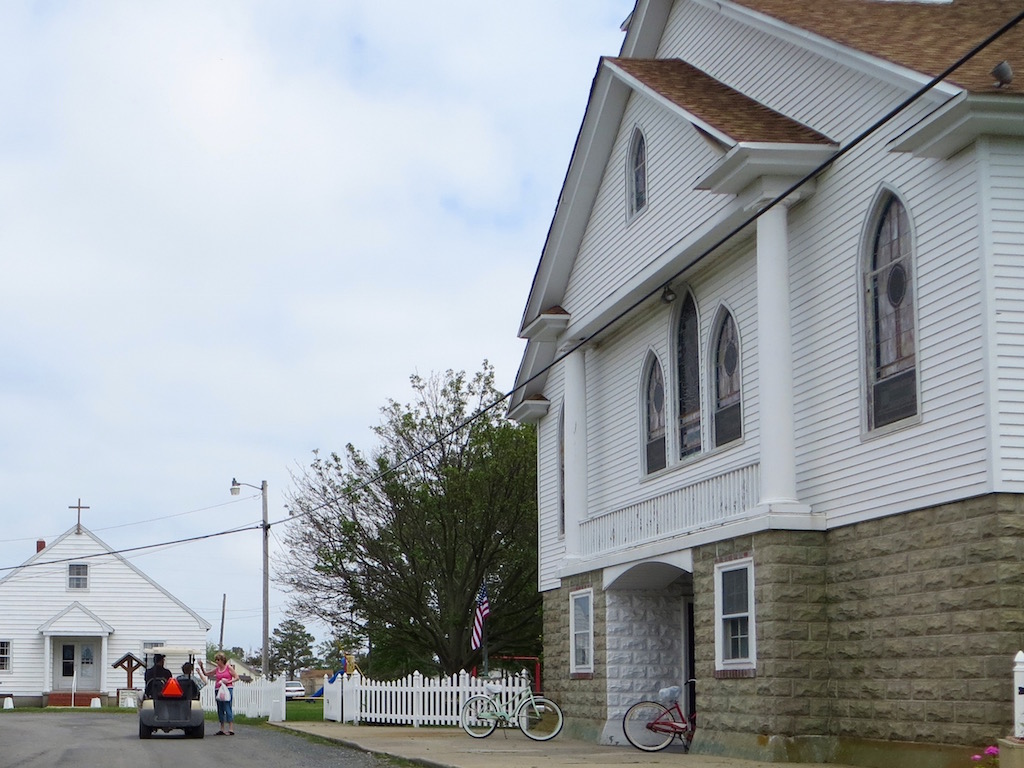
5. Getting around
There’s no mayor on Smith and no cops. From what I could tell by asking around, there’s never been a murder and there’s almost no crime. If there’s a problem, the pastor sorts it out. There’s no doctor anymore, but there used to be. They incinerate their garbage, they take bike rides, they own golf carts, they go to church, they pick crabs, and they don’t seem to mind the tourists.
I borrowed a bike from my B&B, which isn’t Susan’s but the other one, the three-roomed Smith Island Inn. I thought I would cycle the afternoon away, growing tired and tan and calm. There were too many bugs. I gave up.
A pick-up truck rolled past. The driver must have been sitting on phone books.
“How old is that kid?” I asked another kid on the street. I took quickly to the idea that there were no such thing as strangers here and that that could include me.
“He’s 14.”
“How old are you?” He was 12. “Do your parents let you drive?”
“No,” he said, smiling.
6. Newcomers
Most of the people who live on Smith have always lived on Smith, but not everybody. Curtis retired to Smith. He and his wife bought a house that came with a boat and an antique store. They were in the market for a house, but they bought a life and a place in the community with that store, which is filled with old hand mirrors and broaches and things that feel like an old-fashioned idea of precious. Curtis thinks I ask too many questions. He’s right, but I’m also curious and I also don’t want to go outside just yet, where the bugs are waiting.
Someone told me the small general store in Tylerton had bought six cans of bug spray, but I would need a kayak to get there. “You’re fresh meat,” an old man calls out as he watches me shooing flies.
He’s walking from Ewell to Rhodes Point, where he lives on a houseboat. We walk together until a minivan with no plates pulls over to give him a ride. He tells me that from the age of 12, he drank a half-gallon of Wild Turkey every day until one day twenty-three years ago when he crashed his car. (Smith is a dry island, not a sober one.) It was already too late to save his teeth, but that doesn’t bother him. The flies don’t bother him either. Rhodes Point used to be called Rogues Point until the late 1800s, when more Christian sensibilities prevailed.
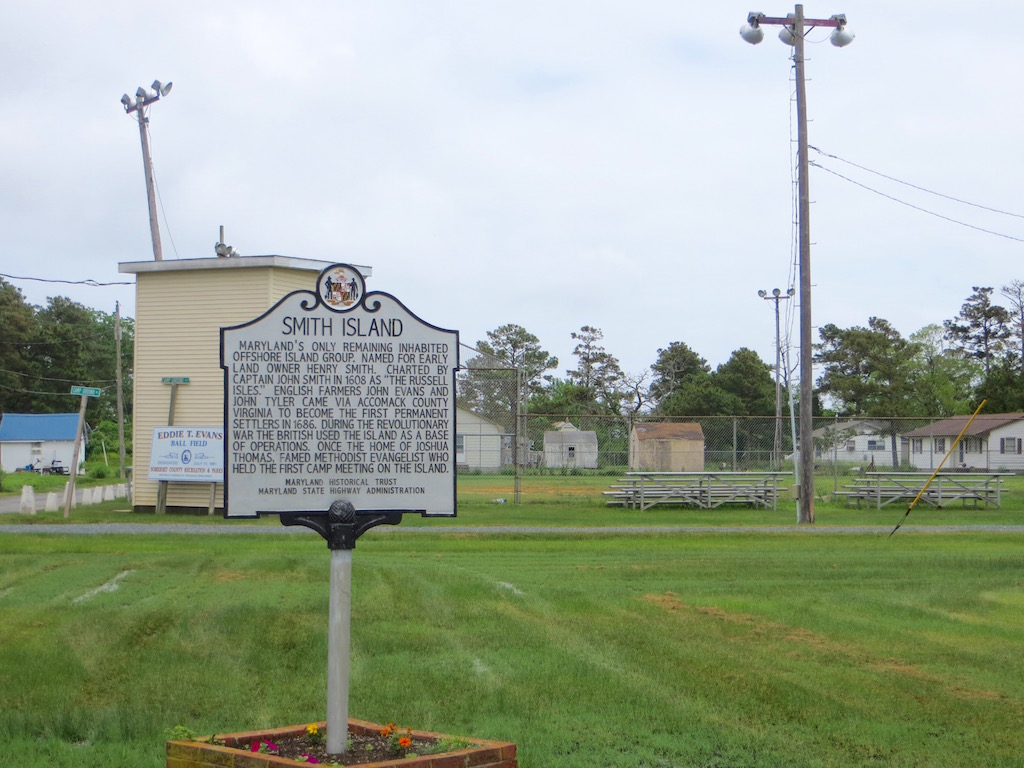
7. The Thing About B&Bs
I stayed in a suite called Eleanor’s Escape because the website promised “an octagonal room that creates a sense of inner harmony with sweet cream, pink, and blue accents.” I hate B&Bs, though. I hate that feeling of guilt when I go to my room with my book and my glass of wine (smuggled aboard the Jason I in my tote bag). B&Bs make me feel like a teenager who refuses to go to family movie night. I’m not a little kid anymore. Plus, there was Meredith.
Meredith and her husband arrived on Smith a full day before me, on top of which Meredith is the sort of person who is already an expert about everything you might be interested in, lucky for you. She knew about Curtis. Did we need her help with the kayaks? Mer knows where they are. She wanted to talk about her surf trip to Nicaragua, and how she thought to bring a corkscrew to Smith. She tells me the shop in Tylerton actually sold all six cans already. When I leave a dirty dish in the sink to soak for five minutes, she washes it.
8. The Whole World Is Sinking
Strange fires burn around town. One is land being turned into a parking lot, someone tells me. There’s another burning pile of wood furniture on the road to Rhodes Point and another not too far from the new dock. They finished the dock a couple months ago, but the boat that’s big enough to take the crane off the island hasn’t come in yet.
The truth is that Smith has always made life hard for the people who live there. The bugs, the heat, the marsh, the biting cold, the storms, the wind, the isolation. But rising sea-levels have made it all measurable. Smith is sacrificing itself to the bay at a rate of two feet a year. It’s not a big place. It can’t bear the loss.
It’s going to rain later and the Jason I will only make one trip to the mainland, cutting my weekend short. On the way to the dock, I pass by the church and the cemetery, full of Evanses and Dizes and Snyders, same as the banana boxes. Marooned together. Buried in sinking land that’s forcing the bodies up, only to be buried again.
I see the 12 year old from the day before and wave. He doesn’t wave back. We’re only strangers.
